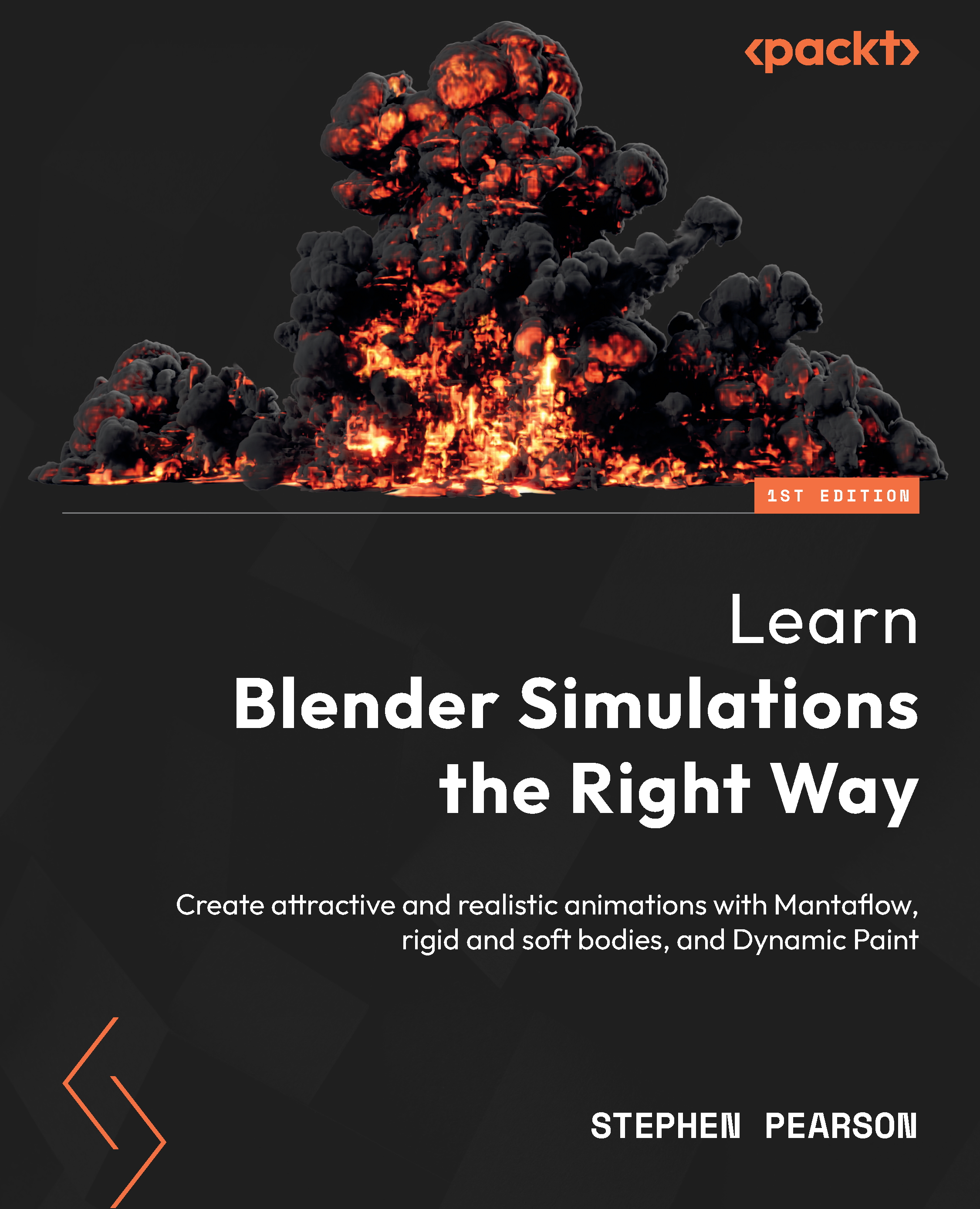Summary
We have now created a nice realistic flag using the cloth simulation in Blender! Hopefully, you learned a thing or two and created something cool in the process! And, as always, let’s recap what we covered in this chapter.
First, we discussed the different things that make up a flag and the sizes and heights. After that, we added and modeled all the objects we needed. We created the simulation and used the Sewing feature in the cloth simulation to tighten and attach the flag to the rope. We also created the materials and learned how to add the texture to the flag. And finally, we did some final touchups and rendered the animation!
It’s always good to practice as well following a tutorial! This way, the steps and things you learned really sink in! I encourage you to create another project using the cloth simulation – maybe a huge medieval banner or a cape flowing in the wind from a character!
Not only is this the end of the chapter but also the...
































































